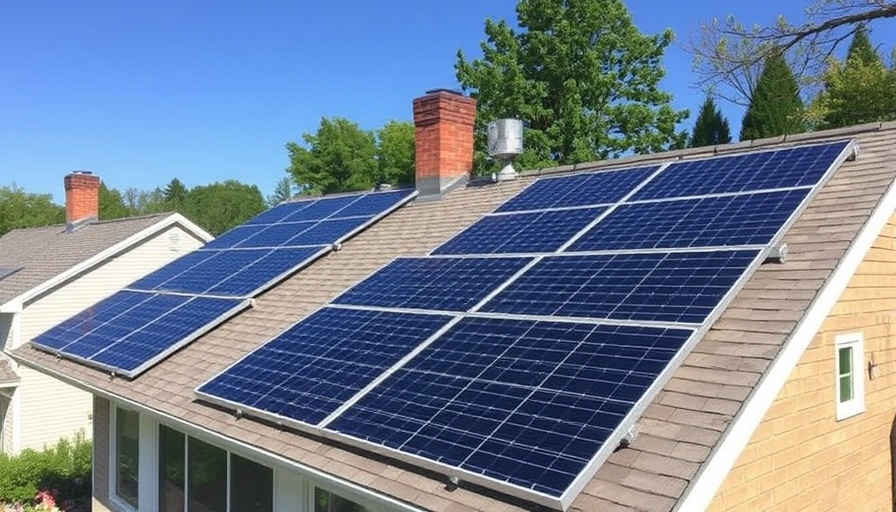
How Rooftop Solar Technology is Transforming Energy Consumption in New England
During a blistering heat wave, homeowners throughout New England are turning to an innovative solution: rooftop solar panels. These energy-saving installations are not only helping residents combat soaring energy costs but also contributing significantly to environmental sustainability.
Solar Energy: A Sustainable Way to Beat the Heat
As temperatures climb, air conditioning units work overtime, leading to skyrocketing energy bills. Rooftop solar systems allow homeowners to generate their own electricity, which can greatly reduce reliance on traditional energy grids. This independence from larger power systems not only cuts costs but also shields homeowners from price hikes associated with increased demand during heat waves.
The Rise of Eco-Conscious Consumers in New England
New England's demographic is shifting, with growing interest in sustainable energy solutions. According to recent studies, a significant portion of homeowners aged 30-65 is prioritizing energy-efficient technologies, indicating a strong correlation between energy independence and environmental responsibility. Eco-conscious consumers appreciate that solar energy reduces their carbon footprint, making it an attractive option amidst rising climate change concerns.
Data-Driven Insights on Rooftop Solar Adoption
Statistics reveal a staggering increase in rooftop solar installations across New England. In 2022 alone, installations surged by over 40% compared to the previous year. This growth indicates a collective movement toward renewable energy, spurred by federal and state incentives designed to make solar options more accessible to average homeowners. Over 100,000 homes now utilize solar energy, showcasing a clear trend towards long-term sustainability.
Challenges and Concerns: Navigating Solar Implementation
Despite the overwhelming benefits of solar energy, potential challenges remain. Homeowners often express concerns about the installation costs, maintenance, and the aesthetic impact of solar panels on their homes. Furthermore, states are seeing rising rooftop solar permitting issues, which can delay installations. Addressing these concerns through improved policies and community outreach will be critical to further promote solar energy adoption.
Visualizing the Future: What Lies Ahead for Rooftop Solar?
As technology advances, the efficiency and affordability of solar panels are expected to increase exponentially. Future innovations may lead to improvements in solar technology, such as enhanced storage capacities that allow homeowners to utilize energy reserves even during non-sunny periods. Incorporating smart home technologies with solar systems could also lead to optimized energy consumption, presenting a compelling case for new buyers looking to future-proof their homes.
Understanding the Broader Implications of Solar Energy
The implications of widespread solar adoption extend beyond individual homeowners. As more residents invest in solar systems, the energy landscape is undergoing a transformation—potentially leading to decentralized solar grids. Such a shift may not only promote local job creation in solar installation and maintenance but also lead to substantial reductions in greenhouse gas emissions. This promising potential paints a brighter, more sustainable future for energy consumption in New England.
Call to Action: Join the Solar Revolution!
Now is the time for homeowners considering solar energy solutions to take action. By investing in rooftop solar panels, not only can you cut down on your energy costs but also contribute to a wider societal shift towards sustainable living. Collaborate with local solar providers to explore options catered to your home, and join the growing community embracing this environmentally friendly technology.
 Add Row
Add Row  Add
Add 



Write A Comment